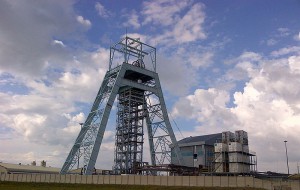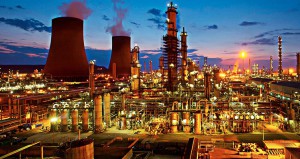Purpose
Air quality management is primarily the minimisation, management and prevention of air pollution,
which aims to improve areas with poor air quality and maintain decent air quality throughout.
What is Air Quality?
Air quality means the state of the air around us.
Good air quality – clean and unpolluted air which is essential to life on earth, human health, vegetation, water, soil, etc.
Poor air quality occurs due to emissions from both natural activities and man – made activities
Poor air quality (air pollution) occurs when pollutants reach high enough concentrations to endanger human
health, animal and/or the environment.
What is air pollution?
The Air Quality Act (Act No.39 of 2004) defines air pollution as any change in the composition of the air caused by smoke, soot, dust, cinders, solid particles
of any kind, gases, fumes, aerosols and odorous substances. The substances that cause air pollution are called pollutants. Air pollutants can be gases, like carbon
monoxide, sulphur dioxide, oxides of nitrogen and chemical vapours or very small particles like dust, bacteria, viruses, plant materials and so on.
What are sources of Air Pollution?
Industrial plants that produce metals such as aluminium and steel, refine petroleum, cement or making of other
chemicals among those that can produce harmful pollutants.
Power stations and refineries that produce energy by burning fossil fuels like coal, gas and oil emitting sulphur dioxide, nitrogen
dioxide and tiny particles such as ash.
 Mining dust particles are produced from mine dumps, ore handling,drilling and blasting and from mine vehicle traffic
Mining dust particles are produced from mine dumps, ore handling,drilling and blasting and from mine vehicle traffic
Traffic vehicles and aeroplanes also contribute to air pollution. Exhaust fumes from engines contain a number of
pollutants, including carbon monoxide, nitrogen oxides and other compounds.
Agricultural activities dust particles are produced during ploughing and harvesting activities.
The use of chemicals on crops to increase crop quality and yield also contributed to air pollution.
Large scale burning to clear agricultural fields also adds significantly to pollution.
Household cooking and heating especially when using coal, wood and paraffin contributes to air pollution. This burning produces sulphur dioxide, carbon dioxide, carbon monoxide and particles. This results in poor air quality and an unhealthy environment especially as most of the burning takes place in a poorly ventilated room.
Refuse burning the burning of refuse is very dangerous as the refuse is a mixture of different materials. E.g. burning of plastics and tyres release harmful pollutants into the air we breathe.
Types of air pollutants
OUTDOOR AIR POLLUTION
Outdoor air quality is affected by:
- Industrial or agricultural activities
- Treatment of industrial effluents and domestic residues
- Traffic
- Solid waste management
- Cottage industries
- Chemical incidents and spills
Outdoor pollution primarily results from the combustion of fossil fuels by industrial plants and vehicles. This releases carbon monoxide, sulphur dioxide, particulate matter, nitrogen oxides, hydrocarbons and other pollutants. The characteristics of emissions and solid waste disposal may vary for each specific industry (e.g. smelting, paper production, refining and others)
INDOOR AIR POLLUTION
Indoor Air Quality refers to the air quality within and around buildings and structures, especially as it relates to the health and comfort of building occupants. Understanding and controlling common pollutants indoors can help reduce your risk of indoor health concerns.
Indoor air quality is mostly affected by:
- Fuel-burning combustion appliances
- Tobacco products
- Building materials and furnishings as diverse as:
- Deteriorated asbestos-containing insulation
- Newly installed flooring, upholstery or carpet
- Cabinetry or furniture made of certain pressed wood products
- Products for household cleaning and maintenance, personal care, or hobbies
- Central heating and cooling systems and humidification devices
- Excess moisture
What are the effects of air pollution?
Ozone depletion
Some pollutants are responsible for destroying the ozone layer located between 20km and 40km above the earth’s surface. This layer is very important for all life on earth as it blocks harmful radiation from the sun from reaching the earth’s surface. As the ozone layer is being depleted, the harmful radiation could easily penetrate through to reach the earth’s surface. The radiation can decrease plant growth and affect the aquatic life. Production of primary crops such as rice, corn and sunflower can also be affected.
Global warming
Human activities are also contributing to the increase of greenhouse gases in the atmosphere, such carbon dioxide and methane. The build-up of these gases act like a blanket that traps heat close to the earth’s surface, increasing the temperature and thus warming the earth. This disrupts the natural greenhouse effect.
Health Effects
Breathing polluted air can make one`s nose burn, irritate the throat thus making breathing difficult. This is a typical experience when one is cooking using wood, coal or paraffin.
Tiny particles of dust and smoke can penetrate deep into a person’s lungs and cause problems like wheezing and irritable coughing, especially to those people living with respiratory diseases such as sinuses and hay fever.
Inhalation of other pollutants such as free crystalline silica leads to conditions such as cancer, heart diseases and even birth defects.
What is the government doing to address air pollution
Section 24 of the Republic of South African’s Constitution provides that:
- Everyone has the right to an environment that is not harmful to their health and well-being.
- The environment is protected for the benefit of present and future generations.
National Environmental Management: Air Quality Act is important as it helps the government to:
- Regulate and manage air pollution in the country.
- Monitor the pollutants to ensure that air quality is improved.
- Enhance the quality of ambient air in order to secure an environment that is not harmful to the health and wellbeing of people
- Setting air quality standards
- Provincial Air Quality Officers Forum


